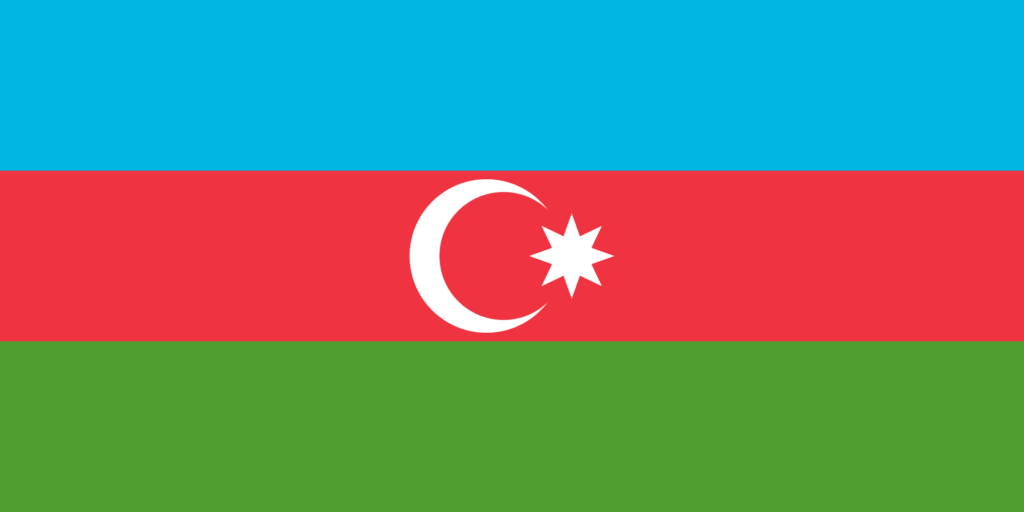Election of the Day: Azerbaijan

Azerbaijani president Ilham Aliyev’s current term was supposed to extend through 2025, but following the destruction of the Republic of Artsakh and the recapture of the territory of Nagorno-Karabakh, he called for a snap “victory election,” presumably to cash in on this swift and complete military victory. That’s the story, anyway, but it’s a bit hard to see how someone in Aliyev’s position needs any kind of strategic edge. He has held the presidency since 2003, when he replaced his recently deceased father as president. His last election was boycotted by any potentially serious opposition party, and this one is as well. For more, this Radio Free Europe story is good, although depressing.
At a debate held before Azerbaijan’s February 7 presidential election, the viewer could be forgiven for not being sure who was supporting the incumbent and who represented the opposition.
“President Ilham Aliyev has kept his word and fulfilled every promise he has made,” said one candidate, Fuad Aliyev (no relation to the president), at the January 15 public television debate. Another candidate, Zahid Oruc, argued that great Azerbaijani statesmen throughout history would all have voted for Aliyev.
The president himself did not appear at the debate but sent an emissary, Tahir Budagov, to absorb some of the flattery.
“Dear Mr. Tahir, do you know the strengths of the candidate you represent?” Razi Nurullayev, the head of the National Front Party, asked Budagov. “For years, our party has stated that we will liberate Karabakh and restore the integrity and sovereignty of Azerbaijan, but your candidate has done it,” Nurullayev said, referring to Azerbaijan’s recapture of the ethnic Armenian-dominated region of Nagorno-Karabakh in September 2023.
The parties in Azerbaijan that offer a genuine opposition to Aliyev — who has exercised authoritarian control over the country since assuming power from his father, Heydar, in 2003 — are all boycotting the race, ceding the field to these ersatz challengers. The only drama in Azerbaijan’s election, scheduled for February 7, is whether the margin of Aliyev’s fifth straight victory will top his record of 89 percent of the vote in 2008. (The next two elections, in 2013 and 2018, saw him get, a more modest 85 percent and 86 percent of the vote, respectively.)
…….
The astroturf nature of the opposition candidates was underscored by the statistically improbable official figures for the number of signatures that they were receiving to get on the ballot: At one point, one candidate had 4,444 signatures, another 4,000, two had precisely 3,333, and the last two each had precisely 3,076.
The parties they represent are funded by the government and generally consist of just one or two figures, according to reporting by RFE/RL’s Azerbaijani Service.
“In the past, they were paid illegally [by the government],” said Azer Gasimli, the head of the Baku-based Institute of Political Management think tank. “Now they have legalized these payments.”
The “opposition” candidates have brought some color to the election campaign by mooting a number of unlikely policy proposals: renaming the country the North Azerbaijan Republic, a nod to nationalist discourse that dreams of a greater Azerbaijan, including the ethnic Azerbaijani minority regions of Iran; formally claiming Armenia’s Syunik Province as Azerbaijani; or sending Azerbaijani troops to support Russian forces in Syria.“They want to talk about all these stupid ideas in order to show that Aliyev is better [and] that these are the only alternatives,” Open Azerbaijan’s Ismayil said.
The election is taking place under unprecedentedly restrictive conditions. Azerbaijan has long been one of the most unfree countries in the post-Soviet space, according to international rankings. A new media law passed in 2022 and a law on political parties adopted the following year further tightened the space for political discussion. That was followed by a wave of arrests of independent journalists and other opposition figures over the last few months.


